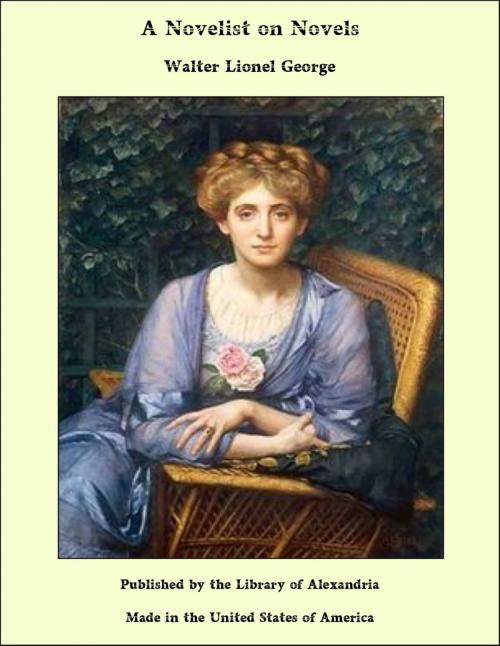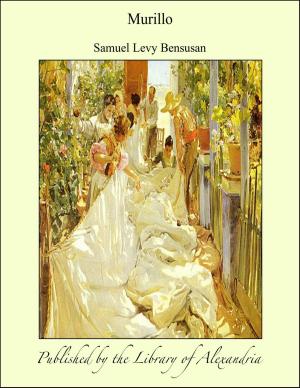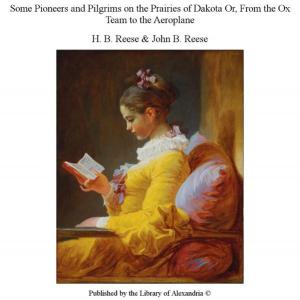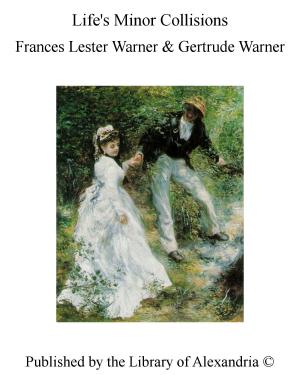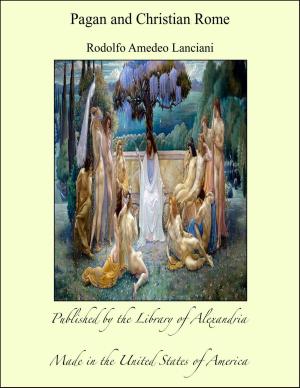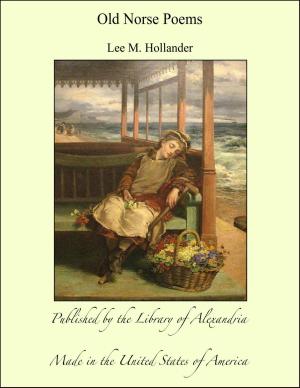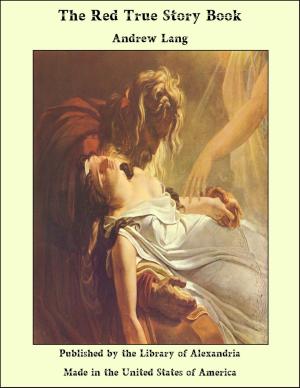| Author: | Walter Lionel George | ISBN: | 9781465625311 |
| Publisher: | Library of Alexandria | Publication: | March 8, 2015 |
| Imprint: | Language: | English |
| Author: | Walter Lionel George |
| ISBN: | 9781465625311 |
| Publisher: | Library of Alexandria |
| Publication: | March 8, 2015 |
| Imprint: | |
| Language: | English |
I have shown the manuscript of this book to a well-known author. One of those staid, established authors whose venom has been extracted by the mellow years. My author is beyond rancour and exploit; he has earned the right to bask in his own celebrity, and needs to judge no more, because no longer does he fear judgment. He is like a motorist who has sowed his wild petrol. He said to me: 'You are very, very unwise. I never criticise my contemporaries, and, believe me, it doesn't pay.' Well, I am unwise; I always was unwise, and this has paid in a coin not always recognised, but precious to a man's spiritual pride. Why should I not criticise my contemporaries? It is not a merit to be a contemporary. Also, they can return the compliment; some of them, if I may venture upon a turn of phrase proper for Mr Tim Healy, have returned the compliment before they got it. It may be unwise, but I join with Voltaire in thanking God that he gave us folly. So I will affront the condemnatory vagueness of wool and fleecy cloud, be content to think that nobody will care where I praise, that everybody will think me impertinent where I judge. I will be content to believe that the well-known author will not mind if I criticise him, and that the others will not mind either. I will hope, though something of a Sadducee, that there is an angel in their hearts. I want to criticise them and their works because I think the novel, this latest born of literature, immensely interesting and important. It is interesting because, more faithfully than any other form, it expresses the mind of man, his pains that pass, his hopes that fade and are born again, his discontent pregnant with energy, the unrulinesses in which he misspends his vigour, the patiences that fit him to endure all things even though he dare them not. In this, all other forms fail: history, because it chronicles battles and dates, yet not the great movements of the peoples; economics, because in their view all men are vile; biography, because it leads the victim to the altar, but never sacrifices it. Even poetry fails; I do not try to shock, but I doubt whether the poetic is equal to the prose form. I do not want to fall into the popular fallacy that prose and poetry each have their own field, strictly preserved, for prose is not always prosy, nor poetry always poetic; prose may contain poetry, poetry cannot contain prose, just as some gentlemen are bounders, but no bounders are gentlemen. But the admiration many people feel for poetry derives from a lack of intelligence rather than from an excess of emotion, and they would be cured if, instead of admiring, they read. Some subjects and ideas naturally fall into poetry, mainly the lyric ideas; 'To Anthea,' and 'The Skylark' would, in prose, lie broken-pinioned upon the ground, but the exquisiteness of poetry, when it conveys the ultimate aspiration of man, defines its limitations. Poetry is child of the austerity of literature by the sensuality of music. Thus it is more and less than its forbears; speaking for myself alone, I feel that 'Epipsychidion' and the 'Grecian Urn' are just a little less than the Kreutzer Sonata, that Browning and Whitman might have written better in prose, though they might thus have been less quoted. For poetry is too often schwaermerei, a thing of lilts; when it conveys philosophical ideas, as in Browning and in that prose writer gone astray, Shakespeare, it suffers the agonising pains of constriction. Rhyme and scansion tend to limit and hamper it; everything can be said in prose, but not in poetry; to prose no licence need be granted, while poetry must use and abuse it, for prose is free, poetry shackled by its form.
I have shown the manuscript of this book to a well-known author. One of those staid, established authors whose venom has been extracted by the mellow years. My author is beyond rancour and exploit; he has earned the right to bask in his own celebrity, and needs to judge no more, because no longer does he fear judgment. He is like a motorist who has sowed his wild petrol. He said to me: 'You are very, very unwise. I never criticise my contemporaries, and, believe me, it doesn't pay.' Well, I am unwise; I always was unwise, and this has paid in a coin not always recognised, but precious to a man's spiritual pride. Why should I not criticise my contemporaries? It is not a merit to be a contemporary. Also, they can return the compliment; some of them, if I may venture upon a turn of phrase proper for Mr Tim Healy, have returned the compliment before they got it. It may be unwise, but I join with Voltaire in thanking God that he gave us folly. So I will affront the condemnatory vagueness of wool and fleecy cloud, be content to think that nobody will care where I praise, that everybody will think me impertinent where I judge. I will be content to believe that the well-known author will not mind if I criticise him, and that the others will not mind either. I will hope, though something of a Sadducee, that there is an angel in their hearts. I want to criticise them and their works because I think the novel, this latest born of literature, immensely interesting and important. It is interesting because, more faithfully than any other form, it expresses the mind of man, his pains that pass, his hopes that fade and are born again, his discontent pregnant with energy, the unrulinesses in which he misspends his vigour, the patiences that fit him to endure all things even though he dare them not. In this, all other forms fail: history, because it chronicles battles and dates, yet not the great movements of the peoples; economics, because in their view all men are vile; biography, because it leads the victim to the altar, but never sacrifices it. Even poetry fails; I do not try to shock, but I doubt whether the poetic is equal to the prose form. I do not want to fall into the popular fallacy that prose and poetry each have their own field, strictly preserved, for prose is not always prosy, nor poetry always poetic; prose may contain poetry, poetry cannot contain prose, just as some gentlemen are bounders, but no bounders are gentlemen. But the admiration many people feel for poetry derives from a lack of intelligence rather than from an excess of emotion, and they would be cured if, instead of admiring, they read. Some subjects and ideas naturally fall into poetry, mainly the lyric ideas; 'To Anthea,' and 'The Skylark' would, in prose, lie broken-pinioned upon the ground, but the exquisiteness of poetry, when it conveys the ultimate aspiration of man, defines its limitations. Poetry is child of the austerity of literature by the sensuality of music. Thus it is more and less than its forbears; speaking for myself alone, I feel that 'Epipsychidion' and the 'Grecian Urn' are just a little less than the Kreutzer Sonata, that Browning and Whitman might have written better in prose, though they might thus have been less quoted. For poetry is too often schwaermerei, a thing of lilts; when it conveys philosophical ideas, as in Browning and in that prose writer gone astray, Shakespeare, it suffers the agonising pains of constriction. Rhyme and scansion tend to limit and hamper it; everything can be said in prose, but not in poetry; to prose no licence need be granted, while poetry must use and abuse it, for prose is free, poetry shackled by its form.
